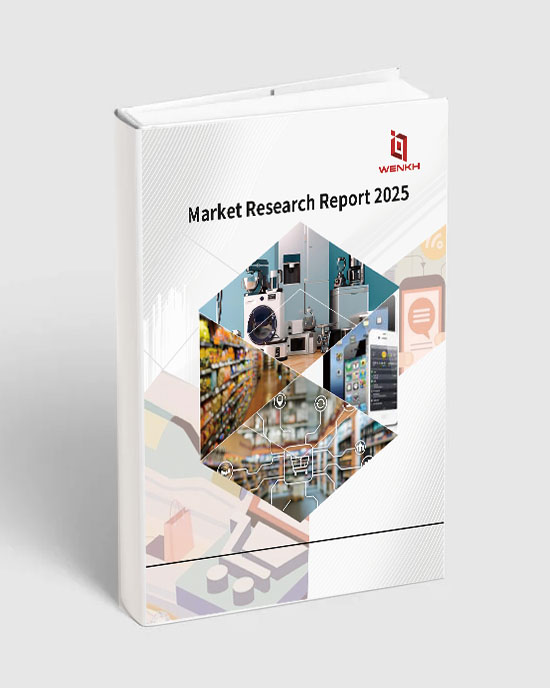
Global Decorated Apparel Market Competitors, Segment Types and Downstream Applications Research Report 2025



Research Summary
Decorated apparel refers to clothing items that have been embellished or customized with various designs, logos, graphics, or text to create unique and personalized garments. This process typically involves the use of different decoration techniques such as screen printing, embroidery, heat transfer, sublimation, or direct-to-garment printing. Decorated apparel is commonly used for promotional purposes, corporate branding, team uniforms, event merchandise, and personal expression. It allows businesses, organizations, and individuals to showcase their logos, messages, or artwork on clothing, making them effective tools for marketing, brand recognition, and identity. The wide range of decoration options available allows for creativity and versatility in producing customized apparel that suits specific preferences and design requirements. Decorated apparel has become a popular and accessible way to add personality and style to clothing, making it a significant aspect of the fashion and promotional industries.
According to WENKH research statistics, the global Decorated Apparel market sales revenue reached Million USD in 2024 and is expected to reach Million USD by 2032, with a compound annual growth rate (CAGR) of % from 2025 to 2032. Among them, the China Decorated Apparel market has experienced rapid changes in recent years, reaching Million USD in 2024, accounting for approximately % of the global market share. It is projected to reach Million USD by 2032.
The global Decorated Apparel market is highly competitive, with key market players including Hanesbrands, SHERRY, EmbroidMe, Vantage, Sharprint, Advance Printwear, Target Decorative Apparel, ScreenWorks, WS&Company, Yunnan Mimori Dress, MV Sport, Lynka, TR McTaggart, etc. This report categorizes the competitive landscape of the global Decorated Apparel market into three tiers based on annual revenue, with the top three market players holding approximately % of the total market share.
This report provides an in-depth analysis of the global Decorated Apparel market, including market size, price trends, market status and future development prospects. It particularly focuses on the market share, product characteristics, pricing, revenue, sales volume and gross profit margin of major manufacturers in the global Decorated Apparel industry. Additionally, this report provides an in-depth analysis of the market status and future development trends of different segments of Decorated Apparel and their downstream application fields.
In terms of data coverage, this report includes extensive time-series data. Historical data spans from 2020 to 2024, providing a solid foundation for analyzing market development trends. The year 2025 is used as a base year to accurately assess the current market landscape, while forecast data extends from 2026 to 2032, using scientific analysis methods and models to offer forward-looking projections and insights into the market's future trajectory. This provides valuable reference information for industry participants and stakeholders.
The report covers countries including United States, China, Germany, Japan, France, South Korea, United Kingdom, India, Italy, Brazil, Mexico, Indonesia, Vietnam and South Africa. It particularly focuses on the revenue and sales volume of Decorated Apparel in these countries, as well as the product segmentation and downstream application market size of each country. The report provides an in-depth analysis of the regional distribution and future development trends of the Decorated Apparel market. By considering local policies, this report evaluates the market prospects of Decorated Apparel in each country, aiming to help companies gain a comprehensive understanding of the industry characteristics and development potential in different regions, optimize regional business layout, and develop precise market strategies to achieve global development goals.
This report places significant emphasis on data quality and reliability, leveraging a wide range of data sources to ensure accuracy and validity. Primary data collection is conducted through multiple channels, including in-depth interviews with senior corporate executives, industry experts, supply chain participants, and end consumers. This helps to gain insights into corporate strategic planning, industry policies, supply chain dynamics, and user experiences. Secondary data sources cover an extensive range, including authoritative government statistics, customs databases, industry related reports, third-party paid databases, investment research reports, academic studies, corporate financial statements, real-time media updates, and information from international organizations, all of which serve as a solid foundation for data verification and analysis.
Companies Covered
Hanesbrands
SHERRY
EmbroidMe
Vantage
Sharprint
Advance Printwear
Target Decorative Apparel
ScreenWorks
WS&Company
Yunnan Mimori Dress
MV Sport
Lynka
TR McTaggart
Product Segment
Embroidery
Screen Printing
Dye Sublimation
Direct to Garment Printing
Others
Product Application
Men
Women
Children
Chapter Scope
Chapter 1: Product Statistical Scope, Product Segmentation Types and Downstream Applications, Overall Market Size, Current Status and Development Prospects
Chapter 2: Global Decorated Apparel Industry Chain Analysis
Chapter 3: Global Decorated Apparel Industry Environment Analysis and Porter's Five Forces Analysis
Chapter 4: Analysis of the Competitive Landscape of Major Companies in the Global Decorated Apparel Market (Market Share, Product Revenue and Sales Volume Comparison, Tier Division, Corporate Expansion and M&A Trends)
Chapter 5: Analysis of Global Major Companies (Company Profiles, Product Specifications and Features, Product Revenue, Product Sales Volume, Product Average Price and Product Gross Profit Margin)
Chapter 6: Global Decorated Apparel Market Analysis by Countries, Product Segment and Downstream Application (Sales Volume, Revenue and Average Price)
Chapter 7: United States Decorated Apparel Market Size, Product Segment, Downstream Application Analysis (Sales Volume, Revenue and Average Price)
Chapter 8: China Decorated Apparel Market Size, Product Segment, Downstream Application Analysis (Sales Volume, Revenue and Average Price)
Chapter 9: Germany Decorated Apparel Market Size, Product Segment, Downstream Application Analysis (Sales Volume, Revenue and Average Price)
Chapter 10: Japan Decorated Apparel Market Size, Product Segment, Downstream Application Analysis (Sales Volume, Revenue and Average Price)
Chapter 11: France Decorated Apparel Market Size, Product Segment, Downstream Application Analysis (Sales Volume, Revenue and Average Price)
Chapter 12: South Korea Decorated Apparel Market Size, Product Segment, Downstream Application Analysis (Sales Volume, Revenue and Average Price)
Chapter 13: United Kingdom Decorated Apparel Market Size, Product Segment, Downstream Application Analysis (Sales Volume, Revenue and Average Price)
Chapter 14: India Decorated Apparel Market Size, Product Segment, Downstream Application Analysis (Sales Volume, Revenue and Average Price)
Chapter 15: Italy Decorated Apparel Market Size, Product Segment, Downstream Application Analysis (Sales Volume, Revenue and Average Price)
Chapter 16: Brazil Decorated Apparel Market Size, Product Segment, Downstream Application Analysis (Sales Volume, Revenue and Average Price)
Chapter 17: Mexico Decorated Apparel Market Size, Product Segment, Downstream Application Analysis (Sales Volume, Revenue and Average Price)
Chapter 18: Indonesia Decorated Apparel Market Size, Product Segment, Downstream Application Analysis (Sales Volume, Revenue and Average Price)
Chapter 19: Vietnam Decorated Apparel Market Size, Product Segment, Downstream Application Analysis (Sales Volume, Revenue and Average Price)
Chapter 20: South Africa Decorated Apparel Market Size, Product Segment, Downstream Application Analysis (Sales Volume, Revenue and Average Price)
Chapter 21: Research Conclusion
Chapter 22: Methodology and Data Source
Purpose and Value of the Report
Market Trend Insights: Analyze industry trends, market dynamics, and future growth potential to help companies forecast changes and develop strategic plans.
Competitive Landscape Analysis: Understand key players' revenue segmentation, strategies, market share, and business models to guide competitive decisions.
Investment Decision Support: Provide feasibility analysis through market size, growth rate, demand trends, and potential risks for informed investment decisions.
Target Customer and Demand Analysis: Examine consumer behavior, purchasing preferences, and pain points to optimize products and improve market penetration.
Policy and Regulatory Insights: Interpret relevant industry policies to ensure compliance and mitigate regulatory risks.
Business Model Optimization: Offer data-driven suggestions for enhancing business models and improving profitability.









